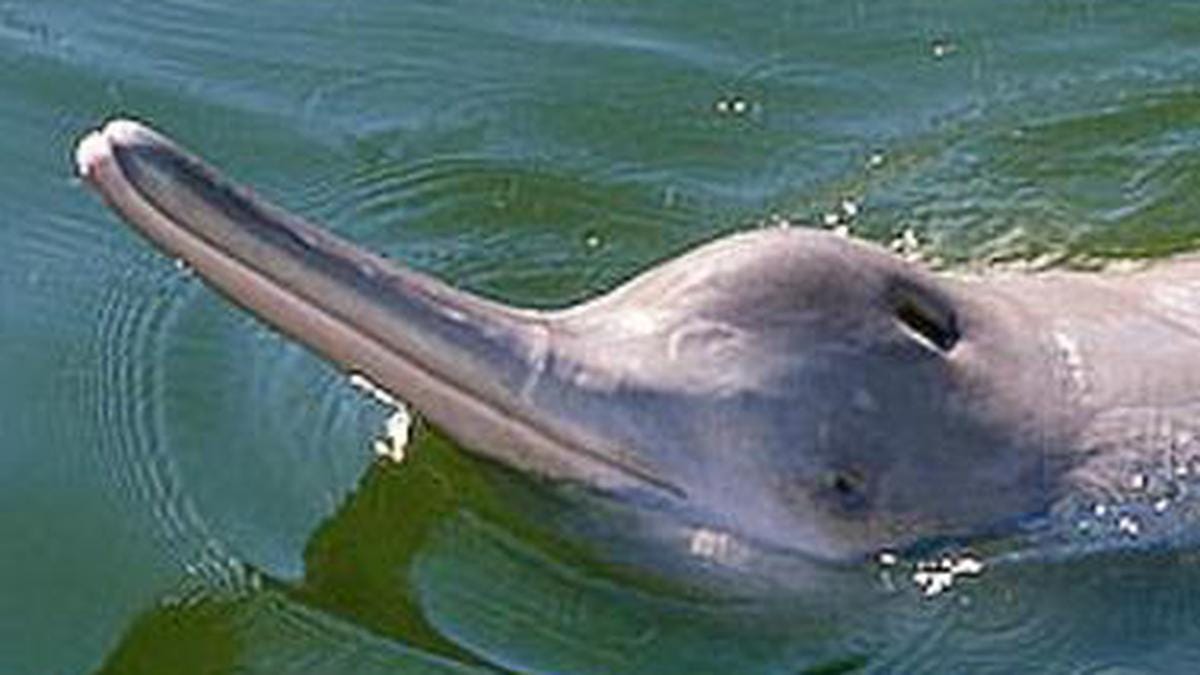Sunny climate stormy climate | Weekly digest #62
The battle for clean air in Mumbai may see the famous pav as collateral damage, results from India's first survey of the Gangetic dolphin and China's doubling down in the EV race
Hello folks!
Here’s this weeks dose of climate news where as usual I bring one sunny story that gives hope and two stormy ones that are a cause for alarm. Hope you like them!
🌩️ Stormy news 🌩️
1. The battle for improving Mumbai’s air quality may affect the taste of your vada pav!
What are we talking about?
For 150 years, Mumbai’s pav has been baked in wood-fired ovens. The pav is at the heart of many Mumbai favourites - Vada pav, misal pav and Pav bhaji!
Now, the BMC is asking 650 bakeries to ditch century-old wood-fired ovens and switch to alternatives like electricity, LPG, and CNG. This is a part of the BMC’s efforts to address the issue of Mumbai’s poor air quality.
What impact will this have?
The cost of the pav could double with this switch.
The bakery owners will have to ditch the old ovens and move to new models that run on electricity or gas. And setting up these electric ovens won’t be cheap. In an interview with The Scroll, one owner estimated the setting up costs between 11.5 lakh to 16.5 lakh rupees. That’s a massive amount for small businesses with thin profit margins.
The transition could mean job losses. With electric ovens, they simply won’t need as many workers.
The bakery owners are also concerned that the taste of the pav won’t remain the same.
Are bakeries really that big of a problem when it comes to air pollution?
Studies point out that road dust, caused by vehicular pollution, is the real monster, accounting for 72% of the city’s pollution. Construction activities account for another 8%, and the burning of garbage accounts for 4%.
Experts call bakeries ‘low-hanging fruit’ since they’re just 3.5% of Mumbai’s pollution.
Why does this matter?
Unlike large-scale industrial shifts, transitioning bakeries to cleaner fuel is feasible, cost-effective, and relatively quick.
Additionally, bakeries operate in densely populated areas, meaning their emissions have a direct and immediate impact on public health. Reducing pollution from these sources can improve local air quality and reduce respiratory illnesses in surrounding communities.
To facilitate this transition, government incentives and structured support are essential. Subsidies, financial aid, and technical assistance could help bakery owners shift to cleaner alternatives without significant financial burden.
By addressing these smaller but impactful sources, Mumbai can achieve incremental but meaningful progress toward cleaner air while continuing to work on transforming larger polluting sectors.
Sources for further reading
This newsletter, now also comes in the form of a Youtube show. Please check it out, subscribe and share it with a friend who prefers video to text!
2. India completed its first Gangetic dolphin survey.
What are we talking about?
India has an endangered species of riverine Dolphin that is found only in the Ganga and Indus basin
From 2021 to 2023, the Wildlife Institute of India conducted a massive survey to count these Indo-gangetic dolphins, covering over 7,109 kilometers across 28 rivers. This included the Ganga, the Brahmaputra, their tributaries and the Beas.
The survey found around 6,324 Gangetic dolphins. Uttar Pradesh has the highest number of Gangetic dolphins - 2,397. Bihar follows closely with 2,220. West Bengal has 815, and Jharkhand and Madhya Pradesh have lower numbers.
However, it found only three Indus dolphins were found, and all in the Beas River in Punjab.
The survey also found 'hotspots' and 'coldspots.' Bihar, for instance, has a high dolphin population, likely due to deeper waters. But stretches in Uttar Pradesh were nearly empty due to pollution, habitat destruction, and dwindling prey.
Why does this matter?
River dolphins are an indicator species—their health reflects the health of the river. Their biggest threats are pollution, illegal sand mining, habitat destruction, loss of water depth and climate change.
Gangetic dolphins and Indus dolphins are classified as endangered and accorded the highest protection under the Wildlife Protection Act, 1972.
Experts warn that if the conditions that affect their survival continue, we could lose the Gangetic dolphin—India’s national aquatic animal—forever.”
Sources for further reading
What the first-ever comprehensive survey of India’s river dolphins revealed (Indian Express)
There is a really nice chapter talking about the Gangetic dolphins in Marginlands by Arati Kumar Rao
🌞 Sunny news 🌞
3. The US is backtracking on its EV commitments, but China continues to race ahead!
What are we talking about?
In the U.S., the Biden administration had made historic investments in EV infrastructure and clean energy, primarily through the Inflation Reduction Act (IRA) of 2022, which provided tax credits of up to $7,500 for EV buyers.
However, under the Trump administration’s recent policy reversals, these incentives are being slashed. The proposed rollback includes:
Ending federal EV tax credits, making electric cars less affordable for consumers.
Weakening vehicle emissions standards, allowing automakers to produce more gas-powered cars for longer.
Cutting federal funding for EV charging infrastructure, slowing down the expansion of charging networks across the U.S.
China is moving in the opposite direction. The Chinese government has poured $230 billion into the EV sector through subsidies, tax breaks, and production incentives.
China is also expanding charging infrastructure at a record pace, with over 3.2 million charging stations already installed—compared to fewer than 200,000 in the U.S.
Why does this matter?
With a major global superpower going back on its commitment to EVs, a promising solution in the fight to address climate change, it is encouraging to see that another dominant power is continuing to double down.
Sources for further reading
You can read previous editions of the newsletter -
Sunny climate, stormy climate | News Digest #61
Sunny climate, stormy climate | News Digest #60
Sunny climate, stormy climate | News Digest #59
If you liked this newsletter, please hit like or leave a comment. If you are a climate champion and want to take this conversation to more people, please share the newsletter with a friend, family member or colleague who may like it too!





